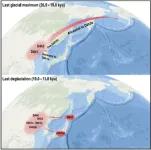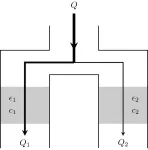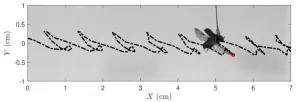(Press-News.org) Vitamin D intake could reduce cancer mortality in the population by twelve percent - provided the vitamin is taken daily. This was the result of an evaluation of 14 studies of the highest quality conducted at the German Cancer Research Center with a total of almost 105,000 participants.
Vitamin D deficiency is widespread worldwide and is particularly common among cancer patients. Averaged over the year, the vitamin D blood levels of about 15 percent of German adults are below the threshold for a pronounced vitamin D deficiency*. In contrast, in a study of colorectal cancer patients, researchers diagnosed vitamin D3 deficiency in 59 percent of participants, which was also associated with unfavorable prognosis.
Potential effects of vitamin D supplementation and the development or prognosis of cancer have already been investigated in numerous studies. "Based on current studies, vitamin D3 supplementation probably does not protect against developing cancer, but it could reduce the likelihood of dying from cancer. However, previous studies on cancer mortality have yielded very different results, and we were interested in the reasons for this," said Ben Schöttker, an epidemiologist at the German Cancer Research Center. "By re-evaluating all previous studies on the topic, we wanted to help produce robust results on this issue, which is so relevant to population health.
To investigate the effectiveness of vitamin D3 on cancer mortality in the population and on the survival of cancer patients, Ben Schöttker and colleagues conducted a systematic literature search that identified 14 studies with a total of nearly 105,000 participants. The researchers considered only studies of the highest quality whose participants had been randomly assigned to the vitamin D3 arm or the placebo arm.
When all 14 studies were pooled, no statistically significant results emerged. However, when the studies were divided according to whether vitamin D3 was taken daily in a low dose** or in higher doses administered at longer intervals**, a large difference was seen. In the four studies with the infrequent hogher doses, there was no effect on cancer mortality. In contrast, in the summary of the ten studies with daily dosing, the researchers determined a statistically significant twelve percent reduction in cancer mortality.
"We observed this twelve percent reduction in cancer mortality after untargeted vitamin D3 administration to individuals with and without vitamin D deficiency. We can therefore assume that the effect is significantly higher for those people who are actually vitamin D deficient," says Ben Schöttker. He explains the better efficacy of daily doses of vitamin D3 by the more regular bioavailability of the active agent, the hormone 1,25-dihydroxyvitamin D, which is only produced by reactions of vitamin D in the body and can presumably inhibit tumor growth.
A more detailed analysis of the studies with daily intake further revealed that people aged 70 and older benefited most from vitamin D3 therapy. In addition, the effect was most evident when vitamin D intake was started before the cancer diagnosis.
Hermann Brenner, epidemiologist and prevention expert at DKFZ, adds: "This work underlines the great potential of vitamin D3 administration in the prevention of cancer deaths. Regular intake at low doses** is associated with almost negligible risk and very low cost."
The current work was supported by German Cancer Aid.
Publikation
Kuznia S, Zhu A, Akutsu T, Buring JE, Camargo CA Jr, Cook NR, Chen LJ, Cheng TD, Hantunen S, Lee IM, Manson JE, Neale RE, Scragg R, Shadyab AH, Sha S, Sluyter J, Tuomainen TP, Urashima M, Virtanen JK, Voutilainen A, Wactawski-Wende J, Waterhouse M, Brenner H, Schöttker B. Efficacy of vitamin D3 supplementation on cancer mortality: Systematic review and individual patient data meta-analysis of randomised controlled trials. Ageing Res Rev. 2023, DOI: 10.1016/j.arr.2023.101923.
* The threshold blood 25-hydroxyvitamin D level used for vitamin D deficiency was 30 nmol/L (= 12 ng/ml). If individuals with less severe vitamin D deficiency (blood 25-hydroxyvitamin D level < 50 nmol/L (= 20 ng/ml)) are added, slightly more than half of Germans have at least one deficiency. However, there are also guidelines that use other thresholds. Since the vitamin D level in the blood depends primarily on the tanning of the skin, this percentage also varies greatly with the seasons.
** In the studies, daily low doses were 400 to 4000 IU per day, and higher-doses administered at longer intervals were 60,000 to 120,000 IU once per month or less.
With more than 3,000 employees, the German Cancer Research Center (Deutsches Krebsforschungszentrum, DKFZ) is Germany's largest biomedical research institute. DKFZ scientists identify cancer risk factors, investigate how cancer progresses and develop new cancer prevention strategies. They are also developing new methods to diagnose tumors more precisely and treat cancer patients more successfully. The DKFZ's Cancer Information Service (KID) provides patients, interested citizens and experts with individual answers to questions relating to cancer.
To transfer promising approaches from cancer research to the clinic and thus improve the prognosis of cancer patients, the DKFZ cooperates with excellent research institutions and university hospitals throughout Germany: National Center for Tumor Diseases (NCT, 6 sites) German Cancer Consortium (DKTK, 7 sites) Hopp Children's Cancer Center (KiTZ) Heidelberg Helmholtz Institute for Translational Oncology (HI-TRON Mainz) - A Helmholtz Institute of the DKFZ DKFZ-Hector Cancer Institute at the University Medical Center Mannheim National Cancer Prevention Center (jointly with German Cancer Aid)
The DKFZ is 90 percent financed by the Federal Ministry of Education and Research and 10 percent by the state of Baden-Württemberg. The DKFZ is a member of the Helmholtz Association of German Research Centers.
END
Reduced cancer mortality with daily vitamin D intake
2023-05-09
ELSE PRESS RELEASES FROM THIS DATE:
Scientists develop AI tool to predict Parkinson’s disease onset
2023-05-09
Scientists from UNSW Sydney with collaborators at Boston University have developed a tool that shows early promise in detecting Parkinson’s disease years before the first symptoms start appearing.
In research published today in the journal ACS Central Science, the researchers described how they used neural networks to analyse biomarkers in patients’ bodily fluids.
The researchers from UNSW School of Chemistry examined blood samples taken from healthy individuals gathered by the Spanish European ...
SwRI selected for Phase A study to develop next-generation NOAA coronagraph
2023-05-09
SAN ANTONIO — May 9, 2023 —NASA has selected Southwest Research Institute for a Phase A study to develop SwRI’s Space Weather Solar Coronagraph (SwSCOR) on behalf of the National Oceanic and Atmospheric Administration (NOAA). NOAA’s Space Weather Next Program is charged with providing critical data for its space weather prediction center. SwRI is one of five organizations developing a definition-phase study to produce the next-generation NOAA L1 Series COR instrument to detect and characterize Earth-directed coronal mass ejections (CMEs).
CMEs are huge bursts of coronal plasma threaded with intense magnetic fields ...
Long molecule of RNA essential to our GI tract’s ability to contract and move food along
2023-05-09
AUGUSTA, Ga. (May 9, 2023) – A long molecule of RNA found in abundance in the healthy smooth muscle cells that give our blood vessels strength and flexibility is also essential to the continuous contraction that moves food through our gastrointestinal tract.
Without CARMN, a long, noncoding RNA, which means it doesn’t produce proteins but does help regulate cell activity, the 30-foot-long GI tract doesn’t contract as it should.
That can result in a painful even lethal situation where partially undigested food gets ...
A CRISPR-edited calf shows virus resistance
2023-05-09
A gene-edited calf shows resistance to a common bovine virus. Bovine viral diarrhea virus (BVDV) causes gastrointestinal and respiratory symptoms as well as reproductive failure in cattle around the world. Vaccines against the virus exist but the virus evolves quickly and vaccines are not always fully protective. Aspen Workman and colleagues used the CRISPR/Cas9 system to swap out just six amino acids in the bovine CD46 receptor in one calf. The calf showed a dramatic reduction in susceptibility to the virus and ...
Potential found to counter depression by restoring key brain rhythm
2023-05-09
Led by researchers from NYU Grossman School of Medicine and University of Szeged in Hungary, a new study in mice and rats found that restoring certain signals in a brain region that processes smells countered depression.
Publishing in the journal Neuron online May 9, the study results revolve around nerve cells (neurons), which “fire” – or emit electrical signals – to transmit information. Researchers in recent years discovered that effective communication between brain regions ...
Evidence of Ice Age human migrations from China to the Americas and Japan
2023-05-09
Scientists have used mitochondrial DNA to trace a female lineage from northern coastal China to the Americas. By integrating contemporary and ancient mitochondrial DNA, the team found evidence of at least two migrations: one during the last ice age, and one during the subsequent melting period. Around the same time as the second migration, another branch of the same lineage migrated to Japan, which could explain Paleolithic archeological similarities between the Americas, China, and Japan. The study appears May 9 in the journal Cell Reports.
“The Asian ...
Trends in deaths from falls among adults age 65 or older
2023-05-09
About The Study: Between 1999 and 2020, deaths coded as being caused by falls among adults age 65 or older in the U.S. increased in number and rates for the overall population and for every population subgroup, although the magnitude of the increase varied. However, the relative ranking of the different groups has not changed over time.
Authors: Alexis R. Santos-Lozada, Ph.D., of Pennsylvania State University in University Park, is the corresponding author.
To access the embargoed study: Visit our For The Media website at this link https://media.jamanetwork.com/
(doi:10.1001/jama.2023.3054)
Editor’s ...
Extracting the best flavor from coffee
2023-05-09
WASHINGTON, May 9, 2023 – Espresso coffee is brewed by first grinding roasted coffee beans into grains. Hot water then forces its way through a bed of coffee grains at high pressure, and the soluble content of the coffee grains dissolves into the water (extraction) to produce espresso.
In 2020, researchers found that more finely ground coffee beans brew a weaker espresso. This counterintuitive experimental result makes sense if, for some reason, regions exist within the coffee bed where less or even no coffee is extracted. This uneven extraction becomes more pronounced when coffee is ground more finely.
In Physics of Fluids, from AIP Publishing, ...
Preserving pine forests by understanding beetle flight
2023-05-09
WASHINGTON, May 9, 2023 – The mountain pine beetle is one of the main causes of tree mortality in the pine forests of North America. For example, the insect has killed thousands of acres of pine forest in British Columbia and Alberta, and as a result, the areas are more vulnerable to wildfire. Increased tree mortality has turned Canada’s forests into a large net source of atmospheric carbon dioxide – emitted from the burned or decaying wood of dead trees – rather than a sink.
In Physics of Fluids, by AIP Publishing, researchers from the University of Alberta studied the flight performance of the mountain pine beetle from a fluid mechanics and an entomological perspective. ...
US gun violence: half of people from Chicago witness a shooting by age 40, study suggests
2023-05-09
Study following Chicagoans over a 25-year period suggests over half of the city’s Black and Hispanic population, and a quarter of its White population, have seen a shooting by age 40.
Researchers followed over two thousand people, with 50% of all the study’s participants witnessing a shooting.
Average age when first witnessing a shooting was just 14 years old.
Women only slightly less likely than men to witness shootings, despite men being far more likely to get shot.
Such levels of violence exposure may cause chronic stress and knock-on health implications for populations in Chicago and elsewhere.
A ...





